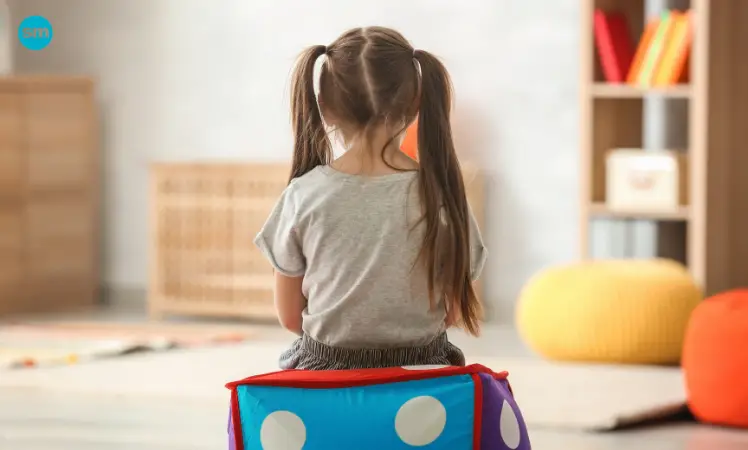Legal Age For Kids To Stay Home Alone By States

Last Updated on May 4, 2024 by Kathy
Being a Single Mother looking for a full-time job to provide better for her children needs to know when she can leave her kids home alone. It’s hard to leave your children alone, but you have to do what you have to do when the budget asks for more funding. And if the budget cannot afford a nanny, you’ll need to leave your kids home alone. So, what is the legal age to let your kids stay home alone?

Although your children seem capable and mature enough to be left alone, there is still some concern. Can they handle an emergency? Are they able to make decisions about situations you don’t know about and follow your instructions?
You, as a parent, should take your child’s skills and maturity into consideration before you decide if they can be left home alone. It’s also essential that you don’t immediately leave them alone for a long period of time. Gradually doing so would help them adjust better to being left home alone.
However, you can’t simply leave your kids home alone. Your children may not be ready to take care of themselves and be able to navigate their way through an emergency situation. There are also laws in every state, and they are all different.
The Minimum Legal Age At Which Children Can Be Home Alone (Depending on the State)
| STATE | MINIMUM AGE |
| Alabama` | None |
| Alaska | None |
| Arizona | None |
| Arkansas | None |
| California | None |
| Colorado | The minimum age is 12 is a recommendation but not a requirement |
| Connecticut | None |
| Delaware | The minimum age is 12 is a recommendation but not a requirement |
| Florida | None |
| Georgia | The minimum age is 9 is a recommendation but not a requirement |
| Hawaii | None |
| Idaho | None |
| Illinois | The minimum age is 8 is a requirement, not a recommendation |
| Indiana | None |
| Iowa | None |
| Kansas | The minimum age is 6 is a recommendation but not a requirement |
| Kentucky | The minimum age is 11 is a recommendation but not a requirement |
| Louisiana | None |
| Maine | None |
| Maryland | The minimum age is 8 is a requirement not a recommendation |
| Massachusetts | None |
| Michigan | The minimum age is 10 is a recommendation but not a requirement |
| Minnesota | The minimum age is 8 is a recommendation but not a requirement |
| Mississippi | None |
| Missouri | None |
| Montana | None |
| Nebraska | The minimum age is 7 is a recommendation but not a requirement |
| Nevada | None |
| New Hampshire | The minimum age is 10 is a recommendation but not a requirement |
| New Jersey | None |
| New Mexico | None, except the City of Albuquerque with a minimum age requirement of 11 |
| New York | None |
| North Carolina | The minimum age is 8 is a requirement not a recommendation |
| North Dakota | The minimum age is 9 is a recommendation but not a requirement |
| Ohio | None |
| Oklahoma | The minimum age is 7 is a recommendation but not a requirement |
| Oregon | None |
| Pennsylvania | None |
| Rhode Island | None |
| South Carolina | None |
| South Dakota | The minimum age is 10 is a recommendation but not a requirement |
| Tennessee | None |
| Texas | None |
| Utah | None |
| Vermont | None |
| Virginia | None |
| Washington | The minimum age is 10 is a recommendation but not a requirement |
| West Virginia | None |
| Wisconsin | None |
| Wyoming | None |
*Minimum Age can be subject to change depending on the year and the laws that the states pass
General guidelines to follow: (Legal age range when can you leave kids home alone)
- 7 and under – Children should not be left alone for more than a few minutes. This could include leaving children alone in their cars, backyards, or playgrounds. The environment’s dangers and the ability to intervene by the caretaker are the most important considerations.
- 8-10 Years old – No longer than 1 1/2 hours alone, and only during daylight hours and the early hours of the evening.
- 11-12 Years old – May be left alone for up to 3 hours, but not later at night or under circumstances that require inappropriate responsibility.
- 13-15 Years old – Can be left unsupervised but not overnight.
- 16-17 Years old – May be left unsupervised (in certain cases for up to two consecutive nights).
Questions to Ask Yourself or Your Child To Know If He/She is Ready To Be Home Alone even though they are at Legal Age.
Do They Follow House and Safety Rules Diligently?
Children who are disciplined enough to follow these rules even when you’re not looking may be ready to be left alone. This could also help you calm yourself down and put you at ease when you can’t be with them during errand running.
Are They Scared To Be Left Alone?
Some children still feel unsure about the idea of being home alone. You can’t force the idea on them and they might feel more unsafe without you around. So, it’s best to talk to your child about the idea and make sure he/she is comfortable with it. Make sure you stay understanding if they say they’re not ready yet.
Does He/She Have a Younger Sibling To Take Care Of?
If your children are capable of taking a babysitting job or taking care of their younger siblings without your assistance, the good thing is they may be ready to be left alone. Sibling dynamics play a significant role; if they still argue about minor things, they may not be prepared to be left alone together.
Is there a Back-up System In Case of Emergencies?
Your children, being left alone, still need someone to talk to or be able to call at any time in case of emergencies. Being able to navigate on their own through crises is excellent, but having an adult that can help them through it is much better. That’s why it’s best to have someone that can reach them, like their grandparents or a trusted neighbor. There are also last-minute babysitter apps to support you if you cannot find anyone in an emergency.
What Should You Consider If You’re Thinking of Leaving Your Child Home Alone
- Age – A child should be at least 12 before being left alone. A child should be at least 15 to be left alone and be responsible for taking care of his/her younger siblings. However, not all children can be ready by the time they reach 12 or 15.
- Maturity and Preparedness – Your child should be able to think things through, plan ahead, and make good decisions.
- Environment – Their environment should be safe and the people around the neighborhood should be trusted.
- Time – A day may be too long, but an hour or two could be fine as a start.
- Your Child’s Feelings – Your child may be nervous about being left alone, so, you should ask them first if it’s okay for them.
If your child is capable of being left home alone, give him the house key. Keep it safe but concealed, such as in a zippered compartment of your child’s backpack. A phone number and the numbers of two neighbors who can be reached should be posted. Your neighbor should also know when your child returns from school.
Safety Rules For Your Child
- Your child should not enter the house after school if he sees something suspicious, like an open door, broken window, or strange people. A trusted neighbor should be available to go to when things become suspicious or he/she should be able to call 911. Your child should also know that he/she should inform you about anything.
- A trusted neighbor should receive any parcels or deliveries instead of your child who is left at home. Repairmen should be called to come on a different day or time.
- Don’t tell anyone you don’t trust that he/she is home alone.
- He/she should answer phone calls directed to you like “My mom can’t come to the phone right now, can I take a message?”
- They should not be allowed to go to anyone else’s place without your permission
- Make a scheduled time when you would check in with him/her
Tips for Parents
If you are confident that your child can stay at home, these suggestions will help you prepare your child so that you feel more comfortable leaving your child alone.
- Have a trial period – This will allow you to leave the child at home for a brief time and still keep close to home. This is a great way to test the child’s ability to manage.
- Role play – Describe scenarios to show your child what you would do in different situations. For example, how to handle visitors to the door and how to answer calls without revealing that a parent is away.
- Discuss emergencies – What is the child’s definition of an emergency? What is an emergency for the parent? A code word that both the child and the parent can use in an emergency.
- Check-in – You can call your child to check on how things are going while you’re away, or let them know that a friend or neighbor will be checking in on them.
- Talk about it – Encourage your child’s feelings about being left home alone. Talk about the experience of your child being left at home. What did your child feel about the experience? Was your child nervous? Was there anything unexpected?
- Don’t overdo it – Even mature and responsible children shouldn’t stay home all the time. To keep your child involved and connected, consider other options such as programs offered at schools, community centers, youth groups, faith-based organizations, or youth organizations.







